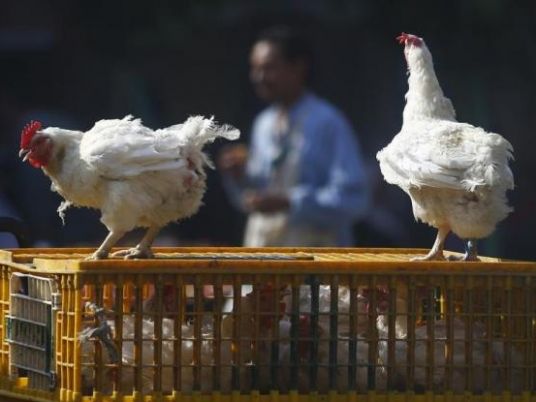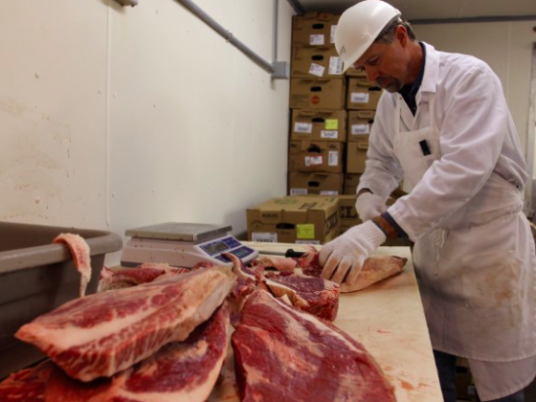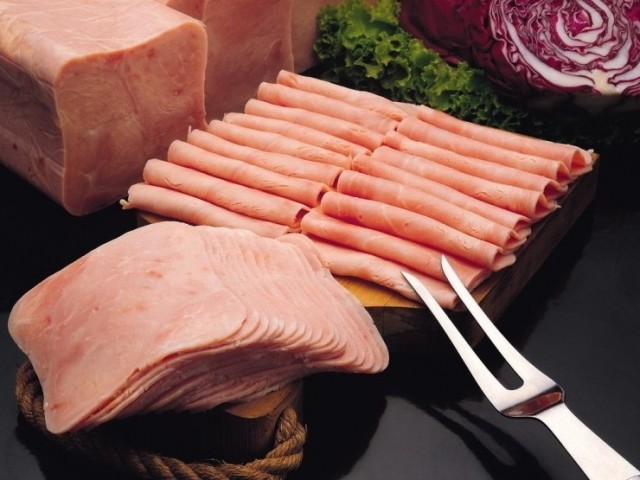The Ministry of Agriculture has decided to set up another ten outlets in Cairo and Giza to sell fruit and vegetables, bringing the total number of outlets to 14.
Medhat al-Meligui, head of the General Union for Producers and Exporters of Horticultural Crops, said the step is intended to restore stability to the fruit and vegetable market, adding that the ministry's intervention has helped control prices.
The prices of vegetables at al-Obour market have gone down. The average price of tomatoes has stabilized at LE5 per kilo, while the price for potatoes is LE2.30 and for onions is LE1.5.
Mohamed al-Mahdi, a greengrocer at al-Abour market, said all the groceries sell their produce at the same prices, but the retailers tend to manipulate prices. That explains why the prices of fruits and vegetables vary from one neighborhood to another, he said.
Regarding meat prices, cattle traders and owners of feedlots project that the prices of red meat will skyrocket over the coming period. They predict that prices could double by the end of 2012.
Hassan al-Qarrawi, a cattle trader, attributed the increase in the prices of meat to the rise in the prices of fodder. He added that the prices of all kinds of cattle have increased.
He also said that the prices of fodder and rent per feddan have increased by 75 percent compared to the past three years. The cost of feeding one calf that is being fattened for slaughter is LE25 a day, which means that the net profit will eventually be low, said al-Qarrawi.
Farrag al-Hefni, another trader, said the price hikes could threaten the livelihoods of small breeders and farmers in Upper Egypt who depend on breeding cattle for income and who are currently unable to purchase fodder.
Youssef Haggag al-Zanati, a cattle and meat trader at a major livestock market in Upper Egypt, said importing meat and livestock from neighboring African countries is not the solution to the problem, even though it may temporarily reduce prices.
Al-Zanati called on the government to ease restrictions on cattle imports. The government says the restrictions are intended to protect local cattle from diseases.
In related news, the Veterinary Medicine Syndicate urged Minister of Agriculture Amin Abaza to issue a ministerial order banning the slaughter of female cattle and calves in order to control meat prices before the high demand expected before the feast of Eid al-Adha.
Ahmed Farahat, president of the syndicate, said the syndicate submitted two memorandums to the minister after it was noticed that some slaughterhouses slaughter calves and female cattle that weigh only 50kg, when they should ideally be left to reach a weight of 400kg. He added that such wrong practices will negatively affect Egypt’s animal wealth and cause prices to ratchet up in the future. Already amounts of livestock in Egypt do not satisfy local needs, creating the need to import, he added.
Farahat also said the syndicate will visit slaughterhouses over the coming weeks to check that the meat carries the appropriate stamps and to ensure that slaughterhouses use the method of halal slaughter.
The syndicate will not be inspecting companies that import meat from the US, Europe or Latin America to help reduce prices, said Farahat. Instead, it will dispatch joint committees including members from the health and agriculture ministries to inspect the meat at entry points.
Farahat said he predicts that the prices of meat will go down before Eid al-Adha as the temperature decreases.
In related news, the internal trade sector, in cooperation with the Ministry of Interior, has launched campaigns across Egypt to combat commercial fraud and to control prices.
Translated from the Arabic Edition.




